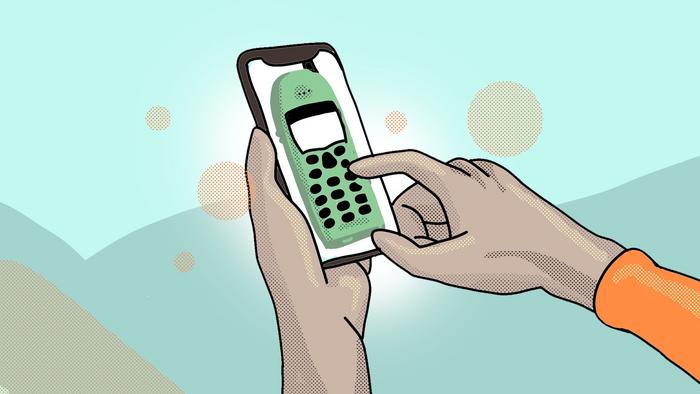In today’s world, where smartphones have become an essential part of daily life, some people are choosing to go against the grain by using traditional mobile phones or reduced-feature designer phones, often referred to as “dumbphones.” A new study from Aalto University has delved into the reasons behind this decision and the challenges that come with it.
The research, set to be published in the April issue of the Proceedings of the ACM on Human-Computer Interaction, involved interviews with individuals who either gave up their smartphones or never had one in the first place. The participants hailed from countries and social circles where smartphones were readily available and considered the norm.
Associate Professor Janne Lindqvist, head of the computer science department, noted that “Custom dumbphones can be expensive, and some of the European participants had even ordered phones from Africa that weren’t available on the domestic market.”
The reasons for choosing a dumbphone varied among the participants. Some wanted to escape the distractions that smartphones inevitably bring, while others sought to avoid online surveillance. Parents of young children often made the switch to keep their kids away from social media and to prevent smartphones from interrupting family time.
For a small group of participants, religious principles played a role in their decision. “For adherents of Haredi Jewish practice, the form factor of the phone played an important role because it doesn’t appear too technically precious or novel, and the sometimes cumbersome functionality was seen as a way to prevent excessive use. Aside from necessary communication technologies such as voice calls, text, and sometimes GPS, dumbphones usually have little else, which is valued by users as a way to focus on what they feel really matters,” explained Annabel Rothschild, a doctoral researcher at the Georgia Institute of Technology.
However, opting out of the smartphone world comes with its fair share of inconveniences. Finding a durable dumbphone can be a challenge, and making purchases, dealing with two-factor authentication, and meeting employers’ expectations of being reachable outside of work hours or locations can be difficult without a smartphone.
During the height of the pandemic, some participants faced limited mobility due to mobile device-based access rights in various countries. In extreme cases, the lack of a smartphone even compromised personal safety, as access to quick-call rides was often limited to mobile apps.
“We found that in many societies, all sorts of tricks had to be invented to make life without a smartphone work,” said Lindqvist.
To navigate life without a smartphone, some participants resorted to technical workarounds, such as using stand-alone devices that replicated specific smartphone functions. Many also relied on the smartphones of family members or friends when the need arose. This means that living a smartphone-free life often requires either technical know-how or a supportive network of people.
As smartphones continue to play an increasingly central role in our lives, those who choose to go without them may find themselves facing growing challenges. While the decision to use a dumbphone may stem from a desire for simplicity, privacy, or family values, it’s clear that the consequences of this choice can be far-reaching and, at times, even risky.


